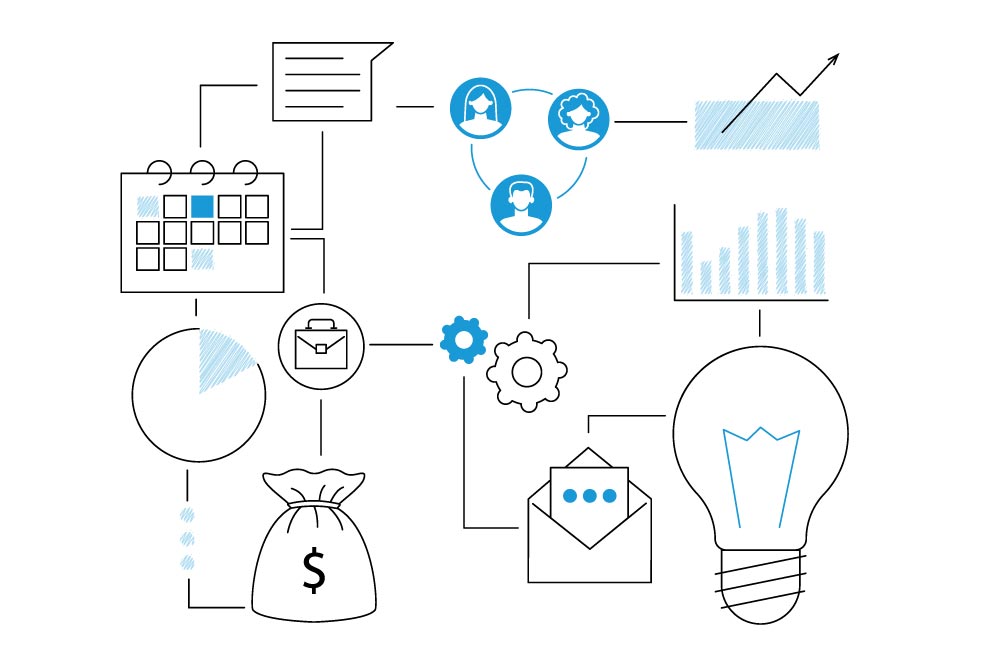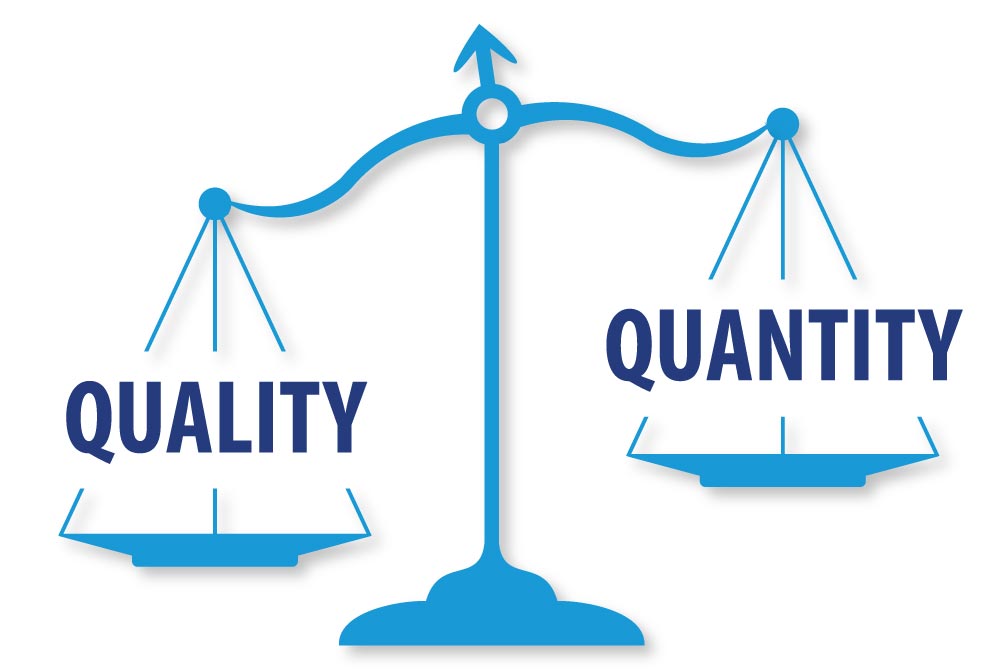Lead Generation for Dentists: Why You Should Be Skeptical of Guarantees
Posted on 9/14/2023 by Kathryn Admin |
 Lead Generation and Its Role in Marketing
If you want to run a successful dental practice, then patient acquisition is paramount. But getting new patients isn't just about having the most state-of-the-art equipment or offering the latest dental treatments. It's also about effective marketing. And a crucial aspect of any marketing strategy is lead generation—the process of attracting and converting strangers into prospective patients who have shown interest in your dental services.
In dental marketing, leads can come from a variety of sources-social media advertising, content marketing, search engine optimization (SEO), and pay-per-click (PPC) to name a few. The goal is to generate high-quality leads that are likely to convert into patients, which then increases your ROI. But, the elusive question remains: can any marketing team guarantee a specific number of leads? And more importantly, should they?
 What Is a Lead Guarantee and Why Should Dental Practices Be Skeptical?
A "lead guarantee" is a promise made by a marketing agency to deliver a specific number of leads within a defined period. While this may sound appealing at first glance (who wouldn't want guaranteed results?), it’s critical to approach such guarantees with a healthy dose of skepticism.
 The Unpredictable Nature of Marketing
To start, marketing isn't an exact science. Various factors, including market conditions, consumer behavior, and competitive landscape, can affect the performance of your campaigns. Even with the most robust dental marketing strategies, guaranteeing a specific number of leads is generally unrealistic.
 Quality Over Quantity
Secondly, and perhaps most importantly, is the issue of lead quality. Agencies that guarantee a specific number of leads may prioritize quantity over quality to meet their targets. You might end up with leads that are unqualified or not genuinely interested in your dental services, ultimately causing you to waste time and resources on follow-up and engagement.
 Integrity Matters
Lastly, a guarantee of this sort might indicate a lack of integrity or understanding of how lead generation works. Dental marketing done right requires a complex, multifaceted approach. Agencies that focus on long-term success, rather than quick wins, are generally more reliable partners.
Grow Your Patient Base with Confidence! Our dental marketing solutions are designed to deliver real results. Talk to our team now and start transforming your practice.
Let's Chat
How to Assess the Quality of Leads: Tips and Tools for Your Dental Practice
 If your goal is high-quality lead generation, you'll need to utilize the proper set of criteria and tools. Luckily, we've outlined those very things below... If your goal is high-quality lead generation, you'll need to utilize the proper set of criteria and tools. Luckily, we've outlined those very things below...
Lead Scoring: A Nuanced Approach to Prioritizing Prospects
Lead scoring is a powerful tool that can give you deeper insights into how well your dental marketing strategies are working. It involves assigning numerical values to each lead based on various attributes like:
Behavioral Cues—Has the lead visited your website multiple times? Opened your emails?
Demographic Information—Does the lead reside within your practice's local area?
Engagement Level—Has the lead engaged with your social media posts or downloaded your free dental care guides?
Dental practices can utilize customer relationship management (CRM) software that has built-in lead scoring features. This automated system will help your marketing team focus on leads that are more likely to convert, thereby improving your ROI.
Lead Segmentation: Tailoring Messages for Target Audiences
Lead segmentation is about categorizing your leads into distinct groups based on specific characteristics such as age, type of dental services required, and geographic location. Segmenting properly is a crucial part of converting leads. Effective segmentation enables:
Targeted Communication—Send out specialized newsletters, offers, or service announcements to each dental lead segment.
Resource Allocation—Assign your resources more efficiently by focusing on segments that are likely to bring more business to your dental office.
For example, you could segment leads interested in cosmetic dentistry separately from those looking for preventative services, and tailor your follow-up and content strategy accordingly.
Analytics and KPI Tracking: Making Data-Driven Decisions
Knowing how to measure the effectiveness of your lead generation strategy is crucial. KPIs (key performance indicators) and analytics should inform your digital marketing strategy. You can use analytics tools to track:
Click-Through Rates (CTR): Higher CTR often indicates compelling ad copy or content, both of which are key to attracting dental leads.
Conversion Rates: The percentage of dental leads that take a desired action, like booking an appointment.
Cost-per-Lead (CPL): Measure how cost-effective your campaigns are by dividing the total campaign cost by the number of dental leads generated.
Regularly reviewing these KPIs will provide you with the data needed to refine your lead generation strategies and improve ROI.
Customer Feedback: The Goldmine for Quality Improvement
In addition to metrics and scoring, never underestimate the value of patient feedback. Patient testimonials and reviews offer unfiltered insights into what people appreciate about your dental practice, as well as areas that may need improvement. The two easiest ways to collect feedback are:
Surveys—Use post-appointment surveys to gauge patient satisfaction and gather suggestions.
Online Reviews—Monitor platforms like Google My Business to see what patients are saying about your own dental practice.
Improving your dental office based of patient feedback is a great way to boost patient loyalty and attract potential patients. Generally speaking, patients want to feel heard and are likely to send you more referrals if they do. Plus, dental offices with a great online reputation typically convert more random leads into new patients.
Proven Strategies to Generate Dental Leads
 In today’s competitive healthcare landscape, merely offering exceptional dental services is not enough. The dental business is cutthroat, and generating a steady flow of qualified leads is critical to ensure the growth and sustainability of your practice. If you're wondering how to achieve this, keep reading. Below, we explore various avenues that are proven to be effective in lead generation for dental practices. In today’s competitive healthcare landscape, merely offering exceptional dental services is not enough. The dental business is cutthroat, and generating a steady flow of qualified leads is critical to ensure the growth and sustainability of your practice. If you're wondering how to achieve this, keep reading. Below, we explore various avenues that are proven to be effective in lead generation for dental practices.
Local SEO: Optimize for Local Keywords and Searches
Local search engine optimization (SEO) is indispensable for any dental practice. Make sure your website ranks high when people in your area search for a local dentist and dental services. You can do this by optimizing your website content, metadata, and acquiring local backlinks. These SEO strategies are key to both successful digital marketing and dental lead generation.
Email Marketing: Nurturing Leads Over Time
While many consider email marketing outdated, it's actually a potent tool in the dental industry. Try to use it for appointment reminders, promoting new dental services or offers, and sharing valuable dental care tips.
A well-segmented list, targeted with the right email marketing tactics, can be an absolute goldmine for generating leads. Because dental lead generation is more than just attracting new patients. It also includes upselling more patients on high-value services like dental implants.
 Referral Programs: Leveraging Existing Patients
Satisfied patients can be the best brand ambassadors for your dental practice. Develop a referral program that rewards people who refer new patients. It's a win-win situation: existing patients feel valued, and you gain qualified leads.
 Social Proof: Building Credibility Through Testimonials and Reviews
Potential patients are more likely to trust your services if others vouch for you, which is why social proof is an important part of dental lead generation. Displaying testimonials and reviews prominently on your website can significantly enhance your credibility and encourage new inquiries from more leads.
 Retargeting Campaigns: Re-Engage and Convert
Retargeting is a strong online strategy to re-engage dental leads who have previously interacted with your brand but didn't convert. By utilizing cookie-based technology, you can display relevant paid ads to these potential leads when they browse other websites.
Use services like Google ads to remind more leads of your services and encouraging them to take action. Retargeting campaigns are just as important for lead generation as campaigns that target new leads.
 Online Directories: Making Your Presence Known
Popular platforms like Yelp or Healthgrades can be incredibly beneficial for generating high-quality leads. The idea is to list your dental practice on these directories with comprehensive, updated information and attractive images. Plus, these platforms also offer paid ad options to further highlight your practice.
 Webinars and Online Workshops: Educate to Generate
Host webinars or online workshops to educate people about oral health, dental hygiene, new technologies, or specific treatments you offer. Not only do these platforms establish your authority in the field, but they also generate qualified leads.
If you're a new dentist, consider collaborating with other healthcare professionals to broaden your reach and expand your target audience. This can be particularly effective if your collaborator has an established presence on social media and promotes the event on their channels.
 Chatbots & 24/7 Live Chat: Round-the-Clock Lead Generation
Implementing chatbots or 24/7 live chat on a website can help generate leads even when dental offices are closed. Chatbots can answer preliminary questions, set up appointments, and gather essential contact information. 24/7 live chat can do all that and allows a new leads to ask more detailed questions. Both help facilitate a seamless path for potential patients. In today's digital world, converting leads has never been easier.
Guerrilla Marketing: Think Outside the Box
If you're looking for a non-traditional approach to shake things up, guerrilla marketing might be the way to go. Whether it’s a pop-up event offering free dental check-ups or unique, interactive social media campaigns, these bold tactics can generate buzz and attract attention, translating into new leads for your dental practice.
By employing a diverse range of strategies, you can ensure a more robust and effective lead generation process. The key is to be consistent, innovative, and focused on providing value to your potential patients.
Grow Your Patient Base with Confidence! Our dental marketing solutions are designed to deliver real results. Talk to our team now and start transforming your practice.
Let's Chat
 A Deeper Dive into Measurable Outcomes
The number of dental leads you generate per month is important. But there are other metrics you should focus on when measuring the success of your lead generation campaigns.
The KPIs listed below will provide valuable insights into the effectiveness of your digital marketing efforts and help shape future strategy:
Website Traffic: The "Front Door" to Your Practice Online
One of the primary indicators of a successful lead generation campaign is an increase in website traffic. The number of visitors, page views, and the average time spent on the site can offer critical insights into customer behavior and interests.
Is there a particular service page getting more clicks? Do you have a high bounce rate? Answering questions like these allow you to adjust or correct your dental lead generation strategy.
Phone Calls: The Direct Line to Patient Acquisition
Keep track of the number of phone calls generated from your marketing campaigns. These calls are often a strong indicator of a highly engaged audience, likely to convert into new patients.
Phone calls can also be used to improve your online marketing. Let's say you start tracking the types of questions people ask during their calls. After a while, you notice that a significant number of potential patients are asking the same question about dental implants. You can then use this information to improve your website content and address the question.
Website Conversion Rate: Turning Visitors into Patients
This metric evaluates the percentage of website visitors who take a desired action, such as filling out a contact form or booking an appointment. A higher conversion rate typically indicates that your website effectively persuades visitors to take action, which is vital for practice growth.
If you're noticing a low conversion rate, the next step is to identify where the disconnect is. It could be a user interface issue or maybe it's an just ineffective landing page. Either way, lead generation is just half the battle. You need a site that converts, and if you're not seeing that, you need to adjust accordingly.
Patient Acquisition Costs: Efficiency Matters
Understanding how much you're spending to acquire each new patient is crucial for ROI calculation. Lower patient acquisition costs usually mean your campaigns are running efficiently, leaving you more budget to allocate elsewhere for growth.
An ineffective lead generation strategy can lead to a higher patient acquisition cost. Maybe you're spending money on paid ads when you really need to spend it on SEO services. Or maybe you need to implement more automated lead generation tactics. You won't know what needs adjustment without measuring what you're doing. And that's why tracking these metrics is so important.
Amount of New Patients Per Month: The Ultimate Measure
Perhaps the most important metric is the number of new patients your practice gains each month as a result of your marketing efforts. Like other metrics, this data can guide future strategies and help you allocate resources effectively.
For an in-depth understanding of how these lead generation metrics play out in real-world scenarios, be sure to check out our case studies. These studies offer invaluable insights into the kinds of results you can expect from a well-executed dental marketing strategy.
Competitor Analysis: Staying One Step Ahead
Understanding your competitors' strengths and weaknesses can offer you a significant advantage. Regularly review their services, patient reviews, and lead generation strategies to identify opportunities for differentiating your dental practice.
By diving deeper into these aspects of lead generation and management, you can improve your marketing strategies and secure a stream of high-quality, profitable dental leads. Remember, lead generation is not about the sheer number of leads but more so the quality and potential for conversion. That is what truly counts in the long run.
The Ongoing Process of Lead Generation and Management
 Lead generation is not a one-and-done activity. It’s a continuous process that needs ongoing analysis and optimization. While it may be tempting to opt for marketing teams that guarantee a certain number of dental leads, it's critical to remember that quality, integrity, and long-term results are far more valuable metrics for success. Lead generation is not a one-and-done activity. It’s a continuous process that needs ongoing analysis and optimization. While it may be tempting to opt for marketing teams that guarantee a certain number of dental leads, it's critical to remember that quality, integrity, and long-term results are far more valuable metrics for success.
Rather than focusing solely on numbers, work with a dental marketing agency that understands the complexities of the industry, prioritizes high-quality dental leads, and operates with integrity. After all, it’s not just about filling your pipeline with new leads. It’s about filling your dental practice with satisfied, loyal patients.
Grow Your Patient Base with Confidence! Our dental marketing solutions are designed to deliver real results. Talk to our team now and start transforming your practice.
Let's Chat |
|




 If your goal is high-quality lead generation, you'll need to utilize the proper set of criteria and tools. Luckily, we've outlined those very things below...
If your goal is high-quality lead generation, you'll need to utilize the proper set of criteria and tools. Luckily, we've outlined those very things below...  In today’s competitive healthcare landscape, merely offering exceptional dental services is not enough. The dental business is cutthroat, and generating a steady flow of qualified leads is critical to ensure the growth and sustainability of your practice. If you're wondering how to achieve this, keep reading. Below, we explore various avenues that are proven to be effective in lead generation for dental practices.
In today’s competitive healthcare landscape, merely offering exceptional dental services is not enough. The dental business is cutthroat, and generating a steady flow of qualified leads is critical to ensure the growth and sustainability of your practice. If you're wondering how to achieve this, keep reading. Below, we explore various avenues that are proven to be effective in lead generation for dental practices. 
 Lead generation is not a one-and-done activity. It’s a continuous process that needs ongoing analysis and optimization. While it may be tempting to opt for marketing teams that guarantee a certain number of dental leads, it's critical to remember that quality, integrity, and long-term results are far more valuable metrics for success.
Lead generation is not a one-and-done activity. It’s a continuous process that needs ongoing analysis and optimization. While it may be tempting to opt for marketing teams that guarantee a certain number of dental leads, it's critical to remember that quality, integrity, and long-term results are far more valuable metrics for success. 








